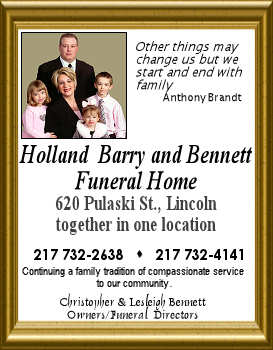|
Even a young Elvis Presley
appeared to have some shortcomings. After a performance early in his
career at the Grand Ole Opry, someone told the King, "You ain't goin'
nowhere, son." Thomas Edison, the man who invented the
incandescent light bulb, as well as the phonograph, the motion
picture camera, a stock ticker, a vote recorder and the electric
motor, had many failures.
Edison tried -- and failed -- to use cement to build small things
such as cabinets and pianos. Concrete was just too expensive
at the time.
He was also one of many inventors who tried -- and failed -- to
combine sound and motion to make talking movies. Actually, he was in
good company because nearly everyone else who tried also failed, and
there were quite a few who tried.
One of Edison's greatest failures was being unable to create a
practical way to mine iron ore. He lost every penny that he invested
in the project.
His electric vote recorder, which worked but was a commercial
failure, taught him a valuable business lesson. It led him to
conclude, "I only want to invent things that will sell."

Oh, and that light bulb only came about after he endured 10,000
failed attempts.
How did all of the failures affect Edison?
Apparently, it made him stronger. He once remarked that he hadn't
failed 10,000 times, but rather that he discovered 10,000 ways that
will not work! Talk about making lemonade when handed a bunch of
lemons. He saw that each failed attempt brought him a little closer
to the solution that he was searching for.
In fact, Edison wasn't even the first inventor to invent a light
bulb when he developed his incandescent bulb in 1878. A British
inventor named Joseph Swan developed a different version a year
earlier. But Edison established the framework to light entire
cities.
[to top of second column]
 |

Despite the title of this story, I'm not trying to convince you
that Edison was a failure. You see, the man who is regarded as the
most successful inventor in American history is the same man who had
the most failures as an inventor. Like Babe Ruth and Elvis Presley,
Edison didn't let his failures slow him down.
His reputation as the greatest inventor of all time comes not
just from having the most patents (he received 1,093 patents), but
also for having the most impact on society with his inventions. Just
about every person living in a civilized society has benefited from
at least one of his inventions. This is even more impressive when
you consider that Edison was nearly deaf and that his formal
schooling didn't go beyond the third grade. One of young Thomas
Edison's teachers even remarked that he was "too stupid to learn."
Where Edison failed on a small scale, he was usually able to
succeed on a larger scale. Most successful inventors create new
products, but Edison created an entire industry -- the electric
industry. His light bulb, along with the power grid that he built to
allow his light bulbs to keep entire cities bright at night, led to
the creation of what is known today as General Electric.
And while Edison failed on a small scale with making certain
products out of cement, he also succeeded on a very large scale with
cement. It was his company, the Edison Portland Cement Company, that
built Yankee Stadium... forever known as "The House that Ruth
Built."
Paul Niemann may be reached at
niemann7@aol.com.
Copyright Paul Niemann 2007
[Text copied from file received
from Paul Niemann]
(Other
columns)
 |